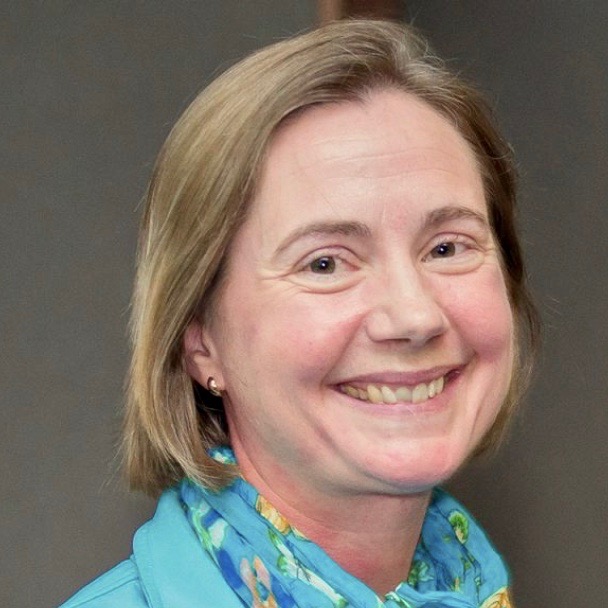Associate Professor of Environmental Science, Auckland University
MA(1st Class) (University of Oxford), MSc (University of Birmingham), PhD (University of British Columbia). View Auckland University profile HERE
A geographer by training, Jennifer has an MA in Geography from Oxford University, and gained her PhD in Geography from the University of British Columbia, Canada in 2001. She is currently an Associate Professor in the School of Environment, University of Auckland. As an urban meteorologist, her research focus extends from studying the meteorological controls on urban air pollution and urban climate risk to quantifying human exposure and uptake of air pollutants. She collaborates with experts from a range of disciplinary backgrounds and her work encompasses the development of novel instrumentation, field measurement and modelling approaches. Jennifer has an active interest in understanding more about the ways in which her research is affected by wider social, economic, institutional and political agendas. Favouring a critical physical geography perspective, Jennifer encourages a reflective approach to research, with an emphasis on identifying and acknowledging the implicit and explicit assumptions which underpin theoretical frameworks, methodological approaches and the actualization of knowledge.
Media: Interview for the Auckland University’s ‘Take 10’ series: HERE
Describe your research topic to us in 10 words or less.
Causes of urban air pollution and potential mitigation strategies.
Now explain it in everyday terms!
My research examines the reasons for the build-up of urban air pollution at localised points in time and space. I use this information to determine when and where people are most likely to be exposed to high concentrations of air pollution and then look for ways in which the risks associated with poor air quality can be reduced. This could be by changing urban design, land-use or human behaviour.
What do you enjoy most about your research?
I enjoy it most when my research makes a difference to people’s lives, their health and/or their enjoyment of urban areas. I also like helping my students develop confidence and skills as they discover new things, work through the challenges they face and develop their own research trajectories. Watching their personal development and sharing their joy when papers are published or degrees are conferred is one of the best parts of my job!
Tell us something that has surprised you in the course of your research.
I am surprised that, despite recent advances in monitoring technology and our new found ability to collect data about almost everything, everywhere and all the time, we haven’t seen a step to change in the ways in which we can manage and mitigate environmental problems. Instead, we have moved from dealing with the limitations created by not enough data to the challenges associated with dealing with lots of data but of variable quality.
How have you approached any challenges you’ve faced in your research?
The interactions between the atmosphere, human behaviour and urban form which determine urban air quality are so complicated that it will be very difficult to ever claim to understand the causes and consequences of air pollution perfectly or accurately predict the effectiveness of any proposed mitigation strategy.
What kind of impact do you hope your research will have?
I hope my research will lead to better urban planning and urban design which makes cities cleaner, safer and more pleasant places to live thereby enabling our lifestyles to become more sustainable. For example, I’m working on an early warning system to help alert decision makers when we expect poor air quality and brown haze with colleagues at MetService and Auckland Council.
Once this is operational we will be able to help people to change their behaviour both in ways to protect themselves from poor air quality by avoiding exercise or heavily congested routes on polluted days, and to limit further pollution by encouraging people to choose public transport or use a heat pump rather than an open fires to heat their houses on high pollution days. I hope that one day my research will help guide urban planners with urban greening initiatives, so that the benefits of planting trees can maximised and negative impacts can be avoided.
rticle: ‘Fewer vehicles, less air pollution’
What impact did the Covid-19 lockdown have on air pollution in Auckland? 30 September 2020. View HERE
Associate Professor Salmond says the research shows that it matters which type of vehicles are removed from the roads not just the number. During lockdown, there was a greater reduction in the number of private cars than diesel vehicles such as buses and trucks.
“That meant that although we reduced traffic by up to 80 percent, pollution wasn’t cut by the same amount and that’s because buses and trucks account for a higher proportion of NO2 emissions.
“This is important when make decisions about how to manage air quality in urban areas. If lockdown showed us one thing it was that we can make significant improvements in air quality by reducing traffic flows. But these results suggest that gains in air quality can also be made by opting for electric buses and lower-emission buses and trucks.”

